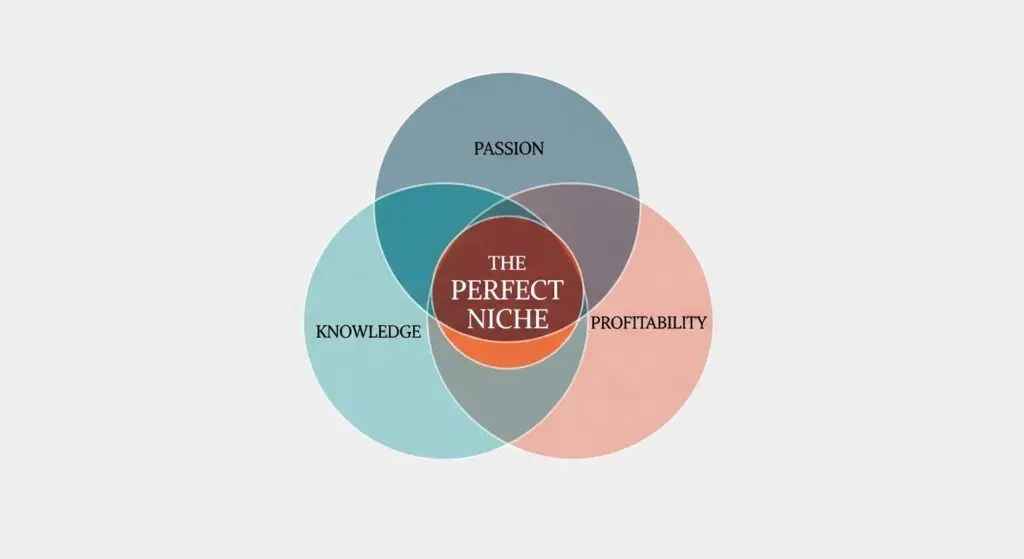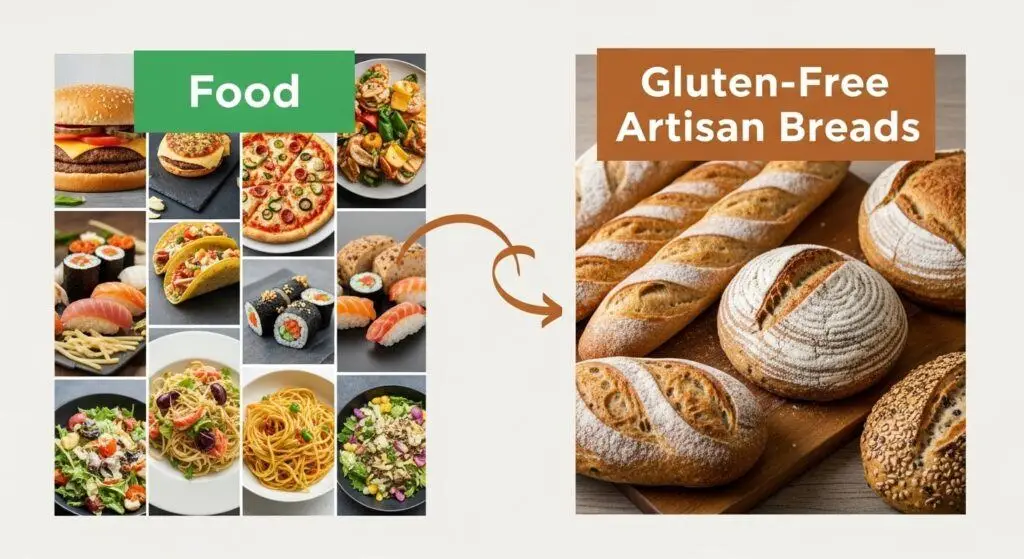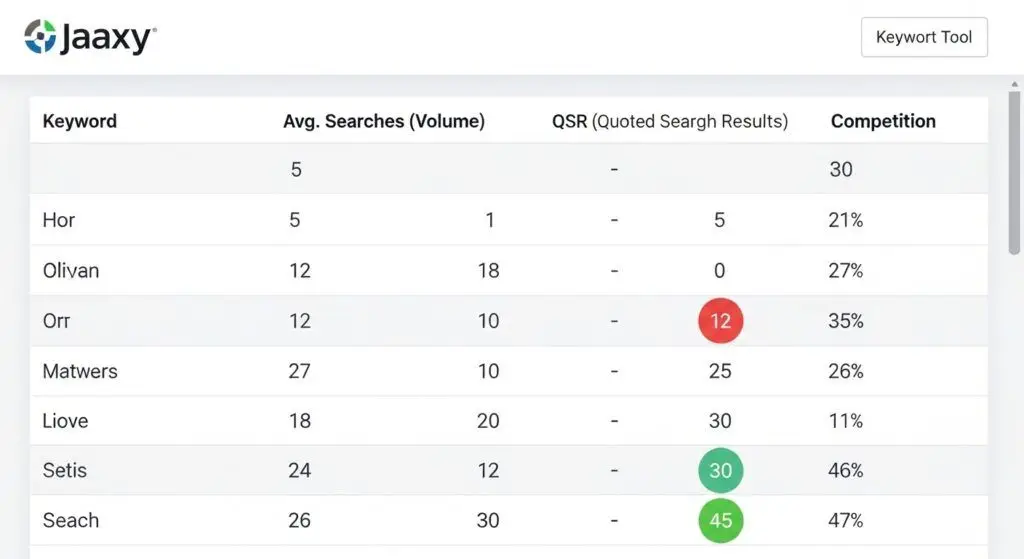Hello, and welcome to arguably the most crucial, yet often the most intimidating, part of your online journey! If you’ve completed your first lessons in the Wealthy Affiliate Core Training, you know that the very first step in building a sustainable affiliate marketing business is choosing your niche.
Now, the word “niche” might sound professional or complicated, but it’s really just a fancy word for your topic or passion. It’s the singular focus that your entire online business—your website, your content, and your authority—will be built around.
Think of it like this: If you decided to open a bakery, your niche wouldn’t be the overly broad term of “food.” It would be something specific like “Gluten-Free Artisan Breads for Busy Professionals,” or perhaps “Allergy-Safe Birthday Cupcakes for Children.” It is specific, targeted, and immediately tells the customer exactly what problem you solve.
Many people get stuck in choosing a profitable niche with Wealthy Affiliate, because they worry about choosing the “wrong” niche or if their idea is “too small.” Don’t let fear stop you! This guide will walk you through the simple, common-sense, and effective process taught at Wealthy Affiliate, proving that the best niche is usually one that already interests you.
🧭 Phase 1: The Soul Search to Choosing a Profitable Niche with Wealthy Affiliate(Validating Your Interest and Endurance)
The number one reason new bloggers quit, often within the first six months, is that they simply get bored with their topic. You will be writing dozens, even hundreds, of articles over the next few years to gain traction. If you don’t genuinely love the subject matter, maintaining the consistency required for SEO success becomes nearly impossible. Your interest is the fuel that keeps the engine running when initial results are slow.
Step 1: Write Down Your Passions (The Brain Dump)

Grab a pen and paper—or open a simple text document. Forget money, feasibility, or competition for now. The goal here is raw, unfiltered curiosity. Just list everything that keeps you curious, engaged, or knowledgeable.
- Your Hobbies: What do you do purely for enjoyment? (e.g., Homebrewing beer, advanced fly fishing, collecting vintage records, training parrots.)
- Your Deep Expertise: What do people consistently ask you for advice on, often relying on your decades of experience? (e.g., Navigating Medicare options, restoring 1950s furniture, advanced Excel functions, raising triplets.)
- Your Solved Struggles: What significant problems have you recently conquered or learned deeply about? (e.g., Successfully paying off massive student debt, mastering keto cooking after years of failure, setting up a functional smart-home security system.)
Aim for a list of at least 10 to 15 diverse ideas. Don’t self-censor at this stage; volume leads to quality ideas later.
Step 2: The Longevity Test (The Evergreen Check)
A strong niche must have long-term, consistent demand, often referred to as being “evergreen.” You are looking for problems or interests that are consistently present in the market over time, not temporary, fleeting fads.
- Avoid Fads and Trends: Is your topic based on a temporary TV show, a viral dance craze, a specific model of technology that will be obsolete next year, or a stock that experienced a one-time spike? (Example of a fad: The specific accessories for a certain phone model released last month; Fidget Spinners in 2017.) These niches dry up quickly.
- Embrace Evergreen: Is your topic a fundamental human interest, problem, or lifelong pursuit? (Examples of Evergreen: Weight loss/fitness, saving/managing money, improving relationships, caring for pets, learning practical skills like plumbing or painting.)
If you can confidently say you will enjoy researching and writing about the topic one year from now, and fifty articles from now, mark it as a potential winner. This commitment ensures you don’t abandon the site just as it’s starting to gain traction with Google.
🔎 Phase 2: The Spyglass Test (Validating Profit & Audience with Data)
Once you have distilled your passions down to 3 or 4 strong, evergreen ideas, it’s time to put on your analyst hat. This is where you stop guessing and start using the data-driven tools provided within Wealthy Affiliate, primarily Jaaxy, to see if your passion meets the reality of the market.

Step 3: Checking for Audience Demand and Monetization Pathways
Your ideal niche sits at the perfect intersection of three critical factors. If any of these is missing, success will be difficult.
| Factor | Core Question | How to Test It Quickly | Why It Matters |
| Demand | Are people actively searching for information about this right now? | Do simple Google searches for your topic ideas. If you see large, active forums, established blogs, or massive company websites discussing it, the audience exists. | No traffic = No income. You must have people looking for answers. |
| Monetization | Can I sell products, services, or advertisements related to this topic? | Do an Amazon search for your topic. If Amazon sells 100+ related items, or if you see online courses being sold related to it, it’s profitable. | You need items to link to. Digital products (courses) often yield higher commissions than physical ones. |
| Competition | Is the market completely saturated with massive, untouchable authority sites (like Wikipedia or Forbes)? | This is where Jaaxy is essential. We need to find the “low hanging fruit”—keywords that a new site can realistically rank for. | New sites can’t beat giants. You must find smaller, manageable corners of the market first. |
Step 4: Using Jaaxy to Find “Low Hanging Fruit”
The Jaaxy Keyword Research Tool (included with your WA membership) acts as a digital spyglass. It pulls Google data to show you exactly what people are typing into search engines and, crucially, how easy it will be for your new website to rank for those terms.
- Search Simple Questions: Type in the simplest, most direct questions people would ask about your niche.
- Example Niche: Bird Watching
- Simple Search: “best binoculars for beginners”
- Understand the Magic Number (QSR): The WA training will teach you to focus heavily on the QSR (Quoted Search Results) score. This number tells you the estimated count of competing websites currently targeting that exact keyword phrase.
- The Goal: Low Competition Wins: You are looking for topics that get a decent volume of monthly searches but have a very LOW QSR score (ideally under 100, sometimes under 50 for a true beginner win). This low-competition territory is your “low hanging fruit”—it’s the easiest spot for a brand-new website to achieve a first-page ranking on Google.
If you can easily find 10 to 15 great article titles that have decent search volume but a low QSR using Jaaxy, your niche is validated by market data and ready for launch!

🎯 Phase 3: The Launchpad (Finalizing Your Specific Focus)
Once you have validated several ideas using both your passion (Phase 1) and the data (Phase 2), the final step is to refine your focus to maximize your chances of becoming an authority quickly.
Step 5: Get Hyper-Specific (Specificity is Your Superpower)
In the early days of building authority, it feels better to be known as The Expert in a very small room than to be a mere beginner shouting into a giant auditorium. Specificity makes it easier to rank and easier for people to remember what you do.
| Too Broad (Hard to Rank) | Too Specific (Easier to Rank, Profitable) | Your Unique Value Proposition |
| Gardening | Indoor Herbs for Apartment Kitchens | The best advice for growing organic basil and mint in a space under 500 sq. ft. |
| Retirement Finances | Managing State Pension Income for Retired Teachers | Step-by-step plans for retired public school teachers to maximize their 403(b) distributions. |
| Dogs | Training City-Dwelling German Shepherds | Proven, low-impact training methods to keep a high-energy German Shepherd calm in dense urban environments. |

Step 6: Analyze the Competition and Carve Your Path
Before you launch your first piece of content, look closely at the top 3-5 competitors who are ranking for your target keywords. This isn’t to copy them, but to find their weaknesses and your opportunities.
- Identify Gaps: What are they missing? Do their websites look outdated? Do they ignore a specific demographic (like seniors, busy parents, or absolute beginners)? Do they have great text but no helpful videos?
- Determine Your Superiority: What can you do better? Can you offer written content in a much simpler, more beginner-friendly tone? Can you provide proprietary diagrams or case studies based on your professional background?
- Define Your USP: Identify your Unique Selling Proposition (USP). This is the angle that differentiates you. Use it to position yourself as the only logical choice for your specific micro-audience.
❓ Frequently Asked Questions (FAQ) on Niche Selection
Q1: What if my niche idea seems too weird or obscure?
A: There’s often no such thing as a niche that’s “too weird” in the digital space! If you are genuinely interested in it, there is almost certainly a small group of people worldwide who share that interest and are looking for specific solutions. The crucial factor is monetization: As long as there are people who might buy something related to the topic (a book, a specialized piece of equipment, a premium course, or an ad placement), it’s a viable business. Don’t worry about “boring”; worry about something you will dread writing about every day!
Q2: Should I pick a niche I know nothing about so I can learn alongside the audience?
A: It’s strongly recommended against this strategy when starting. If you pick a topic that is brand new to you, you are essentially attempting to do two incredibly difficult things at once: learning a new business model (affiliate marketing/SEO) and mastering an entirely new field of knowledge. Make it easier on yourself by choosing something you already possess existing curiosity or basic knowledge about.
Q3: How do I definitively know if a niche is “profitable” before I invest time?
A: A niche is profitable if people are actively exchanging money for solutions or products related to that interest. You can verify this quickly with three mental checks:
- Google Ads: Are there search results showing ads at the top? Companies only pay to advertise where they expect sales.
- Amazon/Retail: Does Amazon sell multiple physical products related to the niche? (This validates physical product commissions.)
- Courses/Software: Are there digital courses or software tools being sold? (This validates higher-paying digital commissions.) If the answer to at least one of these is yes, the niche is monetizable.
Q4: How long should I spend on this niche selection process?
A: You should spend just enough time to feel confident, but not so long that you become paralyzed by analysis. The Wealthy Affiliate method is iterative: choose one of your top 3 ideas, validate it with 10 low-QSR keywords, and then commit for 90 days. If the data still looks promising after 90 days of content creation, stick with it. You can always branch out later, but initial commitment is vital for SEO results.
✅ Summary and Conclusion: From Idea to Authority
Choosing a niche is the fundamental key that unlocks your entire online business structure, and the Wealthy Affiliate Core Training transforms what could be a complex decision into a simple, confidence-building, three-phase process:
- Start with Your Passion (The Soul Search): Your sustained interest is the fuel that keeps you going long enough for Google to notice you (the evergreen test).
- Validate with Data (The Spyglass Test): Use WA research tools like Jaaxy to ensure your passion has an audience actively searching for it and room for a new site to rank (“low hanging fruit”).
- Get Specific (The Launchpad): Narrow your focus to serve a specific, targeted audience perfectly. This allows you to build authority quickly and efficiently.
Don’t let the fear of imperfection stall your progress. There is no single “wrong” niche, only an unfinished website! Trust your interests, complete the action steps outlined in the training modules, and commit to writing. Your profitable niche is waiting for you to start building around it.

